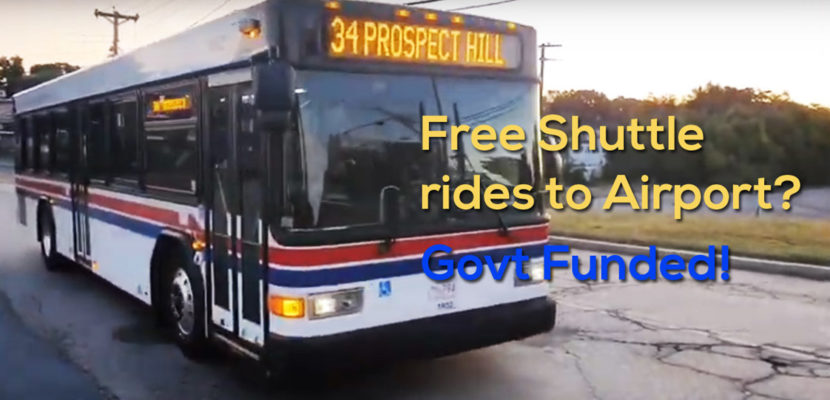Why would any government fund public transportation 100% to make it free? Especially in cities like Boston and suburbs where the population is quite affluent a recent decision by a local authority in Massachusetts left many people wondering.
Boston and its surrounding places have seen a rise in the personal taxi service business, with their network expanding throughout the city. Now, in a bid to boost the public transport ridership, Lawrence on Monday has allowed people to ride three downtown bus routes for free.
To reimburse for the fare losses in the next two years, the Merrimack Valley Regional Transit Authority is getting $225,000 by the city. The routes–34, 37, and 85 are some of the busiest routes in the city. Some of the major stops on these routes include Lawrence General Hospital, the technical school, the senior center, the industrial park, and the Essex street business district. The routes on the 37 bus goes a little far into Andover to include some hotels there. Some Andover Taxi Companies, however, are have not taken this development very well and vociferously condemned it on social media.
Boston city councilor Michelle Wu was the first person to propose this idea on a CommonWealth Codcast last year. In January, she formerly called for the MBTA to become free. Lawrence Mayor, Dan Rivera, said that the inspiration removing the fares on three bus routes came from Wu herself.
The concept gained some popularity in Worcester as well, where, according to a report issued by the Research Bureau in May, the idea was worth exploring. Massport, which is responsible for operating Logan airport, has also agreed with the idea. However, Worcester Taxi companies
The idea of eliminating bus route fair was being contemplated by Rivera, the chair of Merrimack Valley Regional Transit Authority, and Joseph Costanzo (the administrator of the agency) about a year ago. According to Costanza, the current bus fare on the three routes amounts up to $94,000 a year. The two officials settled on the idea of the city, providing that amount plus a cushion, bringing the total to $225,000. The City Council gave a thumbs up to the idea of taking money from the city’s cash reserve to fund the program.
Costanza says that if ridership was to grow dramatically, the city has agreed on kicking an additional revenue of $1 per passenger. The Merrimack Valley Regional Transit Authority tends to Lawrence and 15 other communities, including Andover, North Andover, North Reading, and Haverhill.
Recently, public transport in Boston and its surrounding areas have seen a rise in the ridership. A part of this could be attributed to the developments that have been taking place at Logan airport. These developments have put the airport on its way to becoming one of the busiest airports in the world. The average growth rate of airports in the United States is at 3 percent. However, Logan is marking a passenger rate growth of about 5 percent a year. That means millions of more travelers flying out of Logan. Logan airport shuttle service is being offered by private taxis now and they can cost as much as $20 – $50 per passenger.
During 2018, Boston Logan saw a 6.6 percent growth in passengers, with 40.9 million people traveling through the airport. While, in the first month of 2019, the airport posted 5.4 percent passenger growth. Between 2009 to 2018, Logan recorded a passenger growth rate of 60 percent.
It makes sense for the government to eliminate bus fare, as it will help them gain back the passengers that have been opting for taxi services.


